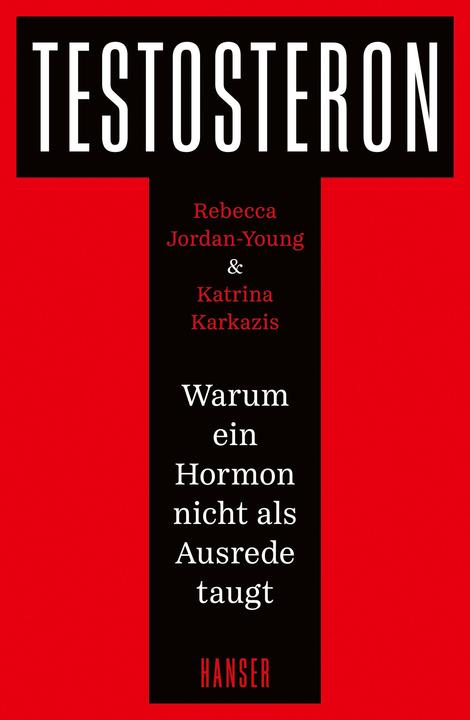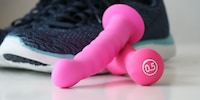

Testosterone therapy for men: craze or cure?
Testosterone deficiency is scary, but do all exhausted men need prescription testosterone? How did this hormone hype start and are there alternatives?
Once you hit forty, many things start to change: a growing belly, shortness of breath climbing stairs and a dwindling desire to exercise, have sex or try new things. When these symptoms affect men, they’re often pinned to testosterone deficiency.
But are dropping testosterone levels really the main reason for depleting virility and fitness or are we dealing with a cleverly marketed myth? Before you reach for this alleged miracle cure or click on an Instagram ad selling you a hormone boost, it’s worth taking a critical look at the facts.
A sign of ageing or a marketing trick? The causes of decreasing testosterone
Fact: from around the age of 40, testosterone levels drop around one to two per cent every year. This is a completely normal occurrence and no reason to panic. Typical changes including slightly reduced energy, increased tiredness or a libido that doesn’t kick in quite as spontaneously anymore, all of which are often blamed on the decreasing male hormone. But is this justified? Yes and no. It has been scientifically proven that testosterone has an effect on muscle mass, bone density and sexual desire. However, how noticeable this is depends very much on how active you are, how well you sleep and what challenges you face in your everyday life.
What is happening is that many people are trying to cash in on this topic. Testosterone is being marketed as a quick solution for practically every ailment affecting men over 40, from listlessness to muscle atrophy. Admittedly, the promise sounds tempting: fill up your male hormone reserves a little and everything will run smoothly again.
Unfortunately, the scientific evidence doesn’t back up the claim that the hormone is a miracle cure. Many of the symptoms described in this type of advertising often have other causes such as a lack of sleep or exercise and stress. These don’t just go away if you boost your testosterone levels.
The most important thing is to distinguish between the following two things:
- An age-related, slow decline in testosterone, which is normal.
- A genuine medical deficiency, which is rare, but treatable.
In other words, the fact that testosterone levels start dropping with age is normal and leads to slight changes. The heavily marketed claim that this hormone is a silver bullet, on the other hand, is just hot air.

Prescribed testosterone: more myth than fact
If you take a look across the pond, you’ll see how testosterone has turned into a flourishing business. In the US, prescriptions for testosterone supplements in men over 40 have increased massively (page in German). However, it turns out that testosterone levels weren’t tested in a quarter of these men before they were prescribed the hormone. This is like a mechanic replacing your car’s engine because it’s reached a certain age without even looking under the hood.
So why is this happening? Because the equation «tiredness = testosterone deficiency» is all over social media, in fitness ads and self-help books. However, only a small proportion of men actually have a true medical testosterone deficiency (values below 300 ng/dl measured at least twice AND clear symptoms).
Ask a professional, avoid quacks
Feeling a bit low on energy doesn’t represent a medical emergency. But if you have permanently low testosterone levels in the morning and clear symptoms such as loss of libido or muscle loss, hormone therapy might be an option. However, you’d have to consult with a medical professional first.
This also applies to self-test kits available from our range. Although they might provide you with some pointers, they’re considered unreliable by experts due to their susceptibility to errors.
If you try to self-diagnose with the help of Chat GPT, Google or influencers, there’s a high risk of falling for marketing tricks. But testosterone supplements can have serious side effects (page in German), including a higher risk of heart attack, infertility or sleep problems, so taking them can potentially be quite dangerous.
What actually helps: lifestyle changes
The good news? Scientists agree that almost all symptoms that are often blamed on an alleged lack of testosterone can be treated using methods that are neither expensive nor risky. Simple health routines are true health boosters:
More exercise, especially strength training: Regular workouts increase natural testosterone production in the long term, put you in a better mood and also give you more energy and muscle mass.
Recuperative sleep: A chronic lack of sleep can lower hormone levels. Instead, try treating your body to seven to eight hours of sleep at night.
Less stress, more mindfulness: Stress has been proven to block testosterone production. Prioritising brief me-time sessions, digital detoxes and targeted stress reduction works wonders.
Keeping body weight in check: Shedding excess weight can improve your hormone balance. The connection between body fat percentage and testosterone is scientifically well documented.
Still think something’s up?
If you’re worried something’s wrong, avoid randomly trying things out or taking supplements. Instead, follow a sensible plan:
- Go to your family doctor or urologist and have your blood values checked. Without knowing your testosterone levels, you should never substitute hormones.
- Try to describe all your symptoms as precisely as possible instead of just looking at lab values.
- Give gentle methods a chance: exercise, sleep, stress management. These often bring improvements even when your hormones genuinely start to decrease.
More science, less quackery
Testosterone’s a fascinating hormone. However, age-related decline is neither a catastrophe nor an illness, but part of a completely normal course of life. Hormone therapy should only be prescribed by experts and is often simply not necessary. And some things can just change with age without having to be repaired.
Science editor and biologist. I love animals and am fascinated by plants, their abilities and everything you can do with them. That's why my favourite place is always the outdoors - somewhere in nature, preferably in my wild garden.
Interesting facts about products, behind-the-scenes looks at manufacturers and deep-dives on interesting people.
Show all

